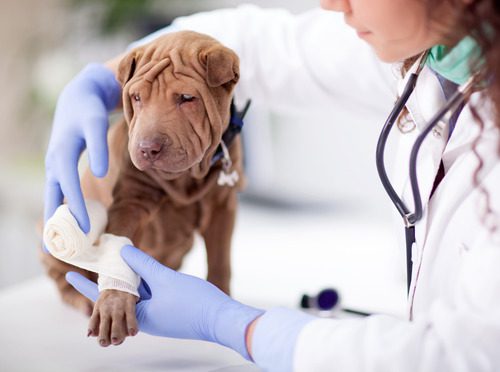When it comes to cat & dog emergencies, quick action can make a world of difference. Emergencies can happen suddenly, from a pet eating something toxic to a sudden injury or difficulty breathing. This blog can help guide you on what qualifies as a true emergency to help you stay calm and get your pet the immediate care they need. At Hershey Animal Emergency Center, our team is here 24/7 to help pets and their families through urgent medical situations with expert care and compassion.

When Every Second Counts
Emergencies don’t follow a schedule. They often strike late at night, on weekends, or during holidays when your regular veterinarian may be closed. That’s why having a trusted emergency hospital in mind, like Hershey Animal Emergency Center, is so important. Our facility is equipped with advanced diagnostic technology, in-house laboratory testing, and an experienced team ready to respond the moment your pet needs help. Below are some of the most common cat & dog emergencies in Hershey, PA, what may cause them, and what signs pet owners should watch for.
Difficulty Breathing or Respiratory Distress
If your pet is struggling to breathe, it’s always an emergency. Respiratory distress can occur due to several causes, including allergic reactions, heart disease, asthma, or airway obstructions. Pets may show rapid, shallow breathing, open-mouth breathing (especially in cats), or blue or pale gums.
Common Causes of Breathing Issues
- Allergic reactions: Insects, medications, or food can trigger severe swelling and airway constriction.
- Heart or lung disease: Fluid buildup or decreased oxygen levels can cause labored breathing.
- Foreign object: A small toy or piece of food can block your pet’s airway.
When you notice these symptoms, contact Hershey Animal Emergency Center at (717) 298-7883 immediately. Breathing issues can worsen within minutes and require oxygen support, medications, or urgent intervention.
Vomiting and Diarrhea
While mild digestive upset may resolve on its own, repeated or severe vomiting and diarrhea often indicate a serious health concern. This is among the most frequent cat & dog emergencies we see as it can quickly lead to dehydration and weakness.
Potential Underlying Causes
- Toxin ingestion: Pets who eat human foods, plants, or chemicals may react severely.
- Gastrointestinal obstruction: A swallowed object can block the digestive tract.
- Infections or parasites: Bacterial, viral, or parasitic infections can upset your pet’s system.
If vomiting or diarrhea lasts more than a few hours, or if you notice blood, lethargy, or loss of appetite, your pet should be seen right away. Our team can perform imaging and lab work to identify the cause and begin supportive care.
Trauma or Injury
Accidents happen, even to the most well-behaved pets. Falls, being struck by a car, or fights with other animals can all cause trauma. Even if your pet seems fine at first, internal injuries may not be immediately visible.
Signs of Trauma
- Lameness or difficulty walking
- Bleeding or visible wounds
- Rapid breathing or restlessness
- Pale gums or collapse
Hershey Animal Emergency Center provides urgent care for injuries such as fractures, wounds, and internal bleeding. Our hospital’s imaging equipment and surgical capabilities allow us to assess and stabilize injured pets quickly.
Ingestion of Toxic Substances
One of the most preventable cat & dog emergencies we see involves pets consuming harmful substances. Chocolate, xylitol (a sugar substitute), certain plants, human medications, and antifreeze are among the most common toxins.
Symptoms of Poisoning
- Drooling or foaming at the mouth
- Vomiting or diarrhea
- Tremors or seizures
- Disorientation or collapse
Even small amounts of a toxin can be life-threatening. If you suspect your pet has eaten something toxic, call (717) 298-7883 or contact ASPCA Animal Poison Control (888-426-4435) for guidance while you head to the emergency hospital.
Seizures
Seizures can look alarming, but they are a sign that something is affecting your pet’s nervous system. Causes may include epilepsy, toxins, metabolic disorders, or trauma.
What to Watch For
- Sudden collapse or stiffening
- Paddling limbs or uncontrollable shaking
- Loss of consciousness
- Drooling or loss of bladder control
If your pet experiences a seizure lasting more than a few minutes or multiple episodes close together, it’s critical to seek immediate care. Our emergency veterinarians can provide medications and supportive care to stabilize your pet and investigate the underlying cause.
Difficulty Urinating or Defecating
Straining to urinate or defecate may seem minor, but it often indicates a serious condition. In cats—especially males—a urinary blockage can be fatal within hours.
Signs of a Urinary Blockage or Digestive Issue
- Frequent trips to the litter box or outdoors with little output
- Crying out or discomfort when urinating
- Licking the genital area excessively
- Vomiting or restlessness
This is one of the most time-sensitive cat & dog emergencies, requiring immediate treatment to relieve pain and restore normal function. Our emergency team can safely address the issue and prevent further complications.
Heatstroke and Overheating
Pennsylvania summers can be hot and humid, and pets are much more vulnerable to overheating than people. Heatstroke can happen quickly, even during a short walk or in a parked car.
Warning Signs of Heatstroke
- Heavy panting or drooling
- Red or pale gums
- Weakness or staggering
- Vomiting, collapse, or loss of consciousness
If your pet shows these symptoms, it’s an emergency. Bring them to Hershey Animal Emergency Center right away. Prompt care can make all the difference in preventing organ failure or death.
Unexplained Weakness or Collapse
Sudden weakness or collapse can signal a number of urgent health conditions, such as internal bleeding, heart problems, or severe anemia.
Key Indicators
- Sudden loss of coordination
- Extreme fatigue or inability to stand
- Pale gums or shallow breathing
These emergencies require immediate evaluation. Our hospital’s on-site diagnostics help us determine the cause quickly so your pet receives the care they need without delay.
Eye Injuries and Sudden Vision Changes
Eye issues can progress rapidly and cause permanent damage if not addressed right away. Pets with eye injuries or sudden vision loss should be seen immediately.
Symptoms to Take Seriously
- Squinting or excessive tearing
- Cloudiness or visible injury to the eye
- Swelling around the eye
- Rubbing or pawing at the face
Eye emergencies are another example of why it’s vital to have a trusted local resource for cat & dog emergencies in Hershey, PA. Our team can perform a full ophthalmic exam to determine the cause and begin appropriate care.
Acting Fast During a Pet Emergency
No one wants to imagine their pet in distress, but preparation helps you respond quickly and calmly. Keep Hershey Animal Emergency Center’s phone number—(717) 298-7883—saved in your phone and posted somewhere visible in your home. When you arrive, our team will assess your pet’s condition immediately and begin the necessary diagnostics or treatments. Whether it’s a sudden illness, injury, or toxin exposure, we’re ready to provide expert, compassionate care around the clock. Your pet’s health and safety are our highest priorities, and our experienced emergency veterinarians are always here when you need them most.
Recent Posts
About Us
At Hershey Animal Emergency Center, we provide compassionatenand modern emergency care 24/7/365—because your pet deserves expert support at any hour.
